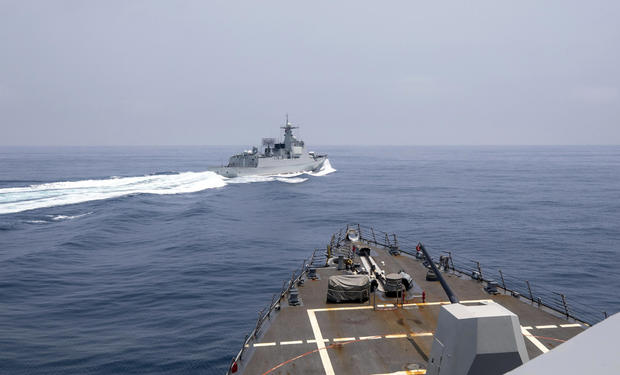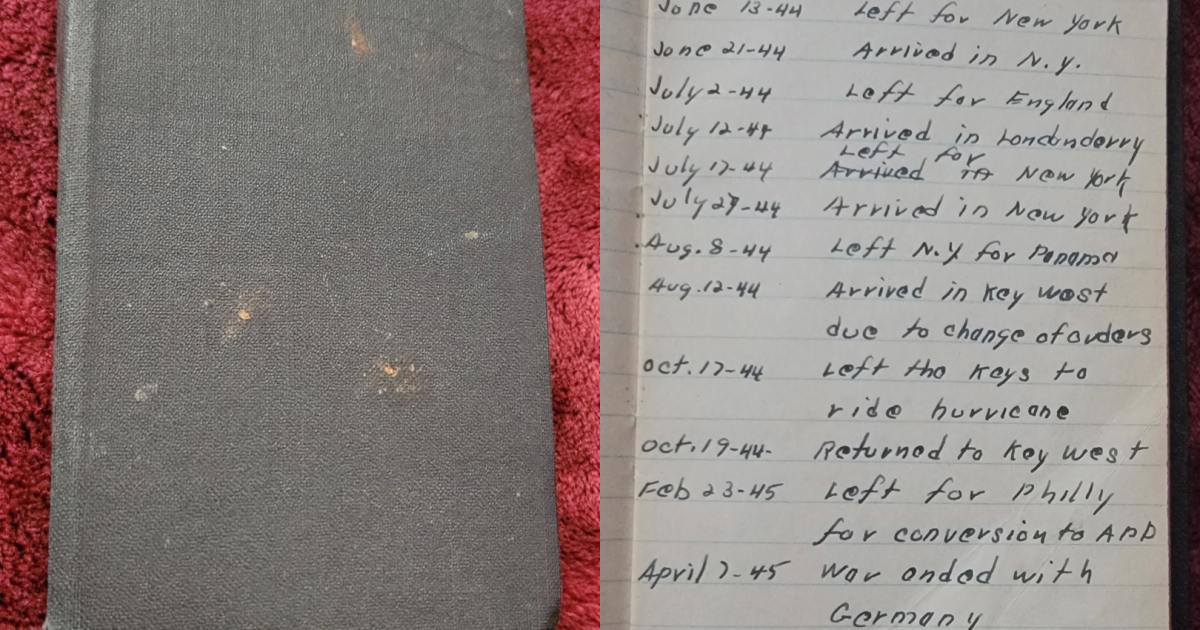Navy releases video of U.S. destroyer's close call with Chinese warship in Taiwan Strait
The United States military released video Monday of what it called an "unsafe" Chinese maneuver in the Taiwan Strait on Saturday in which a Chinese navy ship cut sharply across the path of an American destroyer, forcing the U.S. vessel to slow to avoid a collision.
The incident occurred as the American destroyer USS Chung-Hoon and Canadian frigate HMCS Montreal were conducting a so-called "freedom of navigation" transit of the strait between Taiwan and mainland China.
China claims the democratic self-governing island of Taiwan as part of its territory and maintains the strait is part of its exclusive economic zone while the U.S. and its allies regularly sail through and fly over the passage to emphasize their contention that the waters are international.
During the Saturday transit, the Chinese guided-missile destroyer overtook the Chung-Hoon on its port side then veered across its bow at a distance of some 150 yards, according to the U.S. Indo-Pacific Command. The American destroyer held its course, but reduced speed to 10 knots "to avoid a collision," the military said.
The video released Monday shows the Chinese ship cutting across the course of the American one, then straightening out to start sailing in a parallel direction.
The Indo-Pacific Command said the actions violated maritime rules of safe passage in international waters.
The Chinese ship didn't perform a similar maneuver on the Canadian frigate, which was sailing behind the American destroyer.
"Chung-Hoon and Montreal's transit through the Taiwan Strait demonstrates the combined U.S.-Canadian commitment to a free and open Indo-Pacific," the Indo-Pacific Command said. "The U.S. military flies, sails, and operates safely and responsibly anywhere international law allows."
The U.S. recently accused China of also performing an "unnecessarily aggressive maneuver" in the sky, saying a Chinese J-16 fighter jet late last month flew directly in front of the nose of a U.S. Air Force reconnaissance aircraft over the South China Sea.
The Pentagon released a video of the interaction taken from the cockpit of the U.S. reconnaissance plane. It shows the Chinese jet appearing to approach just in front of the plane before veering off, and then the video shakes as the U.S. plane hits turbulence.
The maneuver was part of a broader pattern, according to the Pentagon. A spokesperson for U.S. Indo-Pacific command said the U.S. has seen "an alarming increase in the number of risky aerial intercepts and confrontations at sea" by Chinese military aircraft and vessels.
For instance, in December, a Chinese jet flew within 20 feet of the nose of a U.S. RC-135 and forced the RC-135 to take evasive maneuvers to avoid a collision, the command said in a statement.
The close-calls have raised concerns of a possible accident that could lead to an escalation between the two countries' militaries at a time when tensions in the region are already high.
The incident in the Taiwan Strait came on a day when both U.S. Defense Secretary Lloyd Austin and Chinese Defense Minister Gen. Li Shangfu were in Singapore for an annual defense conference.
Li on Sunday suggested that the U.S. and its allies have created the danger with their patrols, and was intent on provoking China.
"The best way is for the countries, especially the naval vessels and fighter jets of countries, not to do closing actions around other countries' territories," he said through an interpreter. "What's the point of going there? In China we always say, 'Mind your own business.'"
Austin had invited Li to talk on the sidelines of the conference; Li refused.




